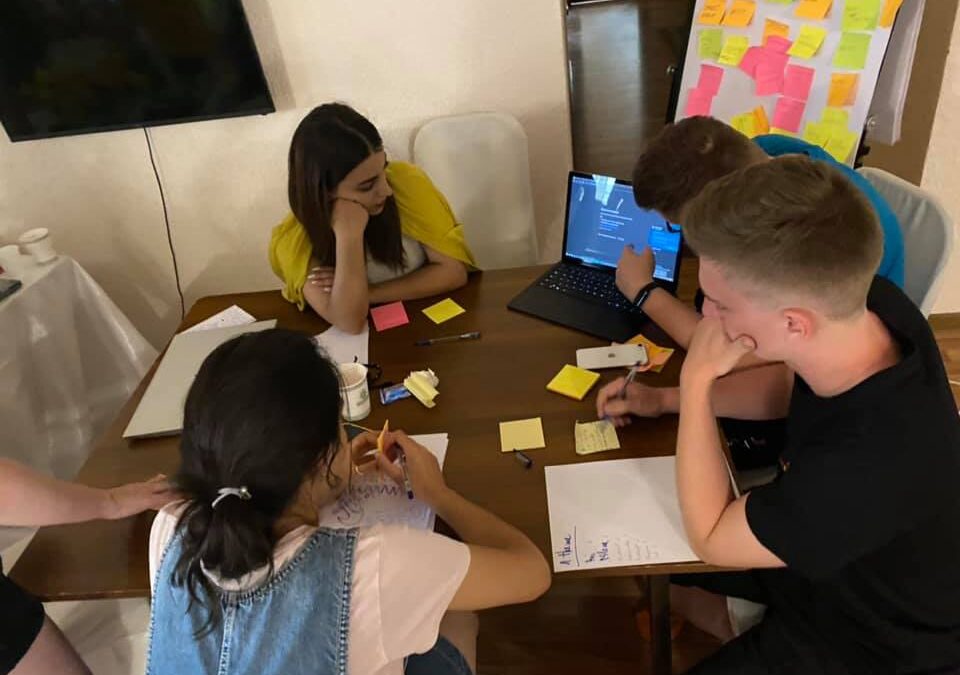Within the framework of “Digital Tools for Youth Work” Erasmus+ KA2 project a training course entitled “Digitalization of Youth Work” was organized on 19th-26th of July, 2021 in Armavir, Armenia.
22 youth workers from Armenia, Estonia, Lithuania and Poland participated in the training course, which aimed at joint learning and exchange between the participants who were involved in co-creation of tools and platform. Participants were youth workers, IT specialists and other staff members from partner organisations who would be implementing the whole process and piloting co-created tools in the future. To pilot and give feedback for the tools all the participants reached their basic level of digital competences to fully understand their role and search for possible synergies. The training course included topics like basics of digital youth work, its potential for integrating digital tools and general enhancement of individual digital competences.
On the first day, the speakers introduced the project, the participants got acquainted with each other, with the Erasmus+ programme and its main features, the Youthpass certificate and its 8 key competences. They were introduced to not only the aim and agenda of the training course, but the whole “Digital Tools for Youth Work” project, after which team-building activities were held. They also had a group work and explained what they understand by the term “Youth Work” and how it can be transformed into the digital world. The last activity of the day was introduction to the basics of hackathon.
The other days were devoted to practical exercises using digital and non-digital tools while working in groups to gain experience in mentoring and participating in a hackathon. The participants were divided into groups and started to prepare for hackathons. After the preparation, pitching started and each team presented their projects. The jury asked the groups different questions about their projects after which they went to decide the winner of the day.
During the last day, the trainers suggested some tips & tricks which would help the participants to examine the tools and revise activities needed for a successful hackathon event. Also, they introduced additional parts of a hackathon by using such digital tools as Google forms, Moodle, letters, engaging before and after, certificate, photos, snacks, interviews, etc. Afterwards a discussion was held about the role of youth workers, and the participants evaluated the whole course.

